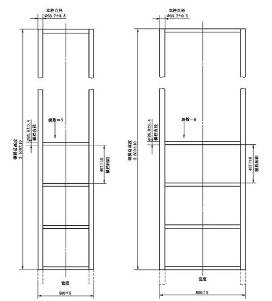resistance measuring instrument
Understanding Resistance Measuring Instruments A Comprehensive Overview
Resistance measuring instruments play a crucial role in various fields, from electronics to industrial applications. These devices are designed to measure the electrical resistance of a conductor, which is defined as the opposition that a material offers to the flow of electric current. Understanding the principles, types, and applications of resistance measuring instruments is essential for both professionals and enthusiasts in the field of electrical engineering.
Principles of Resistance Measurement
At its core, resistance measurement is based on Ohm's Law, which states that the current flowing through a conductor between two points is directly proportional to the voltage across the two points and inversely proportional to the resistance. This relationship is expressed mathematically as
\[ R = \frac{V}{I} \]
Where - \( R \) is the resistance in ohms (Ω), - \( V \) is the voltage in volts (V), and - \( I \) is the current in amperes (A).
Resistance measuring instruments manipulate this principle to accurately obtain the resistance value of a component or circuit. The accuracy of these measurements is crucial, as it can affect the performance and reliability of electronic devices.
Types of Resistance Measuring Instruments
There are several types of instruments used to measure resistance, each with its unique features and applications. Some of the most common types include
1. Multimeters Perhaps the most versatile and widely used instrument for measuring electrical properties, multimeters can measure voltage, current, and resistance. They are available in both analog and digital formats, with digital multimeters (DMMs) being more popular due to their ease of use and accuracy.
resistance measuring instrument

2. Ohmmeters Specifically designed to measure resistance, ohmmeters independently measure the resistance of a component. They can be found as standalone devices or integrated into multimeters.
3. Megohmmeters These specialized instruments, often referred to as megohm testers, are used to measure high resistances typically found in insulation testing. They apply a high voltage to the insulation material to evaluate its effectiveness, making them essential in electrical maintenance and safety checks.
4. Four-Wire Resistance Measurement This method is utilized in precision applications where accurate resistance measurements are crucial. It involves using four probes instead of two, allowing the instrument to eliminate the effects of lead resistance. This technique is standard in laboratory settings and industrial applications requiring high accuracy.
5. Bridge Circuits This method involves using an electrical bridge, such as a Wheatstone bridge, to measure unknown resistance by balancing two legs of a circuit. This technique is highly accurate and is often used in laboratories for precise resistance measurements.
Applications of Resistance Measuring Instruments
Resistance measurement is fundamental to numerous applications. In electronics, engineers use these instruments to test components like resistors, capacitors, and inductors, ensuring that they meet required specifications. In industrial settings, resistance measuring instruments are critical for maintenance and troubleshooting. They can identify issues such as faulty wiring, insulation degradation, and equipment failures, which could lead to costly downtime.
Furthermore, in research and development, accurate resistance measurements are essential for characterizing new materials and components, helping to drive innovation in various fields, including telecommunications, automotive, and renewable energy technologies.
Conclusion
Resistance measuring instruments are indispensable tools in the electrical engineering domain. Understanding their principles, types, and applications enhances our capability to design, maintain, and troubleshoot electrical systems effectively. As technology continues to advance, the precision and functionality of resistance measuring instruments will likely evolve, further enhancing their role in ensuring the reliability and safety of electrical systems across various industries. Whether for hobbyists or professionals, the importance of mastering these instruments cannot be overstated.
-
Why the Conductor Resistance Constant Temperature Measurement Machine Redefines Precision
NewsJun.20,2025
-
Reliable Testing Starts Here: Why the High Insulation Resistance Measuring Instrument Is a Must-Have
NewsJun.20,2025
-
Flexible Cable Flexing Test Equipment: The Precision Standard for Cable Durability and Performance Testing
NewsJun.20,2025
-
Digital Measurement Projector: Precision Visualization for Modern Manufacturing
NewsJun.20,2025
-
Computer Control Electronic Tensile Tester: Precision and Power for the Modern Metal Industry
NewsJun.20,2025
-
Cable Spark Tester: Your Ultimate Insulation Assurance for Wire and Cable Testing
NewsJun.20,2025
 Copyright © 2025 Hebei Fangyuan Instrument & Equipment Co.,Ltd. All Rights Reserved. Sitemap | Privacy Policy
Copyright © 2025 Hebei Fangyuan Instrument & Equipment Co.,Ltd. All Rights Reserved. Sitemap | Privacy Policy
